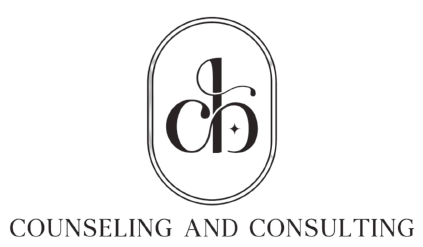Mental Health Blog

How to Spot Emotional Manipulation Early
Emotional manipulation isn’t always loud, obvious, or aggressive. More often, it’s a slow, calculated erosion of your self-trust—disguised as care, concern, or even love. The most insidious part? You may not even realize it's happening until the damage is done.
Whether in friendships, family dynamics, romantic relationships, or even the workplace, manipulation thrives in subtlety. And if you’ve ever walked away from a conversation feeling guilty, uncertain, or questioning your own reality, you may have already encountered it. The key is to recognize the signs early—before you start bending yourself into someone else’s version of who you should be.

1. The Guilt-Crafted Trap: When “I Need You” Becomes “You Owe Me”
There’s a fine line between genuine emotional support and guilt-driven obligation. A manipulator doesn’t just express their feelings—they place the responsibility of their emotions entirely on you.
👉 “I wouldn’t be this upset if you just listened to me more.”
👉 “After everything I’ve done for you, this is how you treat me?”
At first, it might sound like an emotional plea, but the undertone is clear: You are now responsible for their happiness, their sadness, their reactions. And once you accept that role, they’ll ensure you never stop playing it.
How to spot it early: Pay attention to whether someone acknowledges their emotions as their own or frames them in a way that makes you feel obligated to fix, soothe, or change yourself to prevent their distress.
2. Twisting Reality: When Your Recollection Becomes “Wrong”
You remember the conversation. You remember their words. But when you bring it up, they insist:
👉 “That’s not what I said.”
👉 “You’re making things up again.”
👉 “You always overreact to the smallest things.”
Gaslighting isn’t just about denying events—it’s about making you doubt your ability to trust your own experiences. Over time, you may start deferring to their version of reality, because it’s easier than the exhaustion of always defending what you know is true.
How to spot it early: A person who respects you will clarify misunderstandings, not rewrite the truth. If someone repeatedly tells you your perception is faulty, take a step back and ask: Is my memory really unreliable, or do they just benefit from me believing that?
3. The Disguised Compliment: When Praise Comes with a Knife
Emotional manipulators rarely insult outright—they cloak their put-downs in what seems like encouragement. It sounds supportive, but it leaves a sting.
👉 “I love how you don’t care about looking perfect all the time.”
👉 “It’s great that you’re so confident wearing that.”
👉 “You’re really smart—for someone who didn’t finish school.”
These statements aren’t designed to uplift; they’re meant to plant seeds of self-doubt while keeping their hands clean. If you react negatively, they’ll flip it: “Wow, I was just giving you a compliment.”
How to spot it early: True compliments make you feel good, period. If praise consistently makes you feel smaller instead of stronger, it’s not a compliment—it’s a weapon.
4. Moving Goalposts: When Approval Is a Never-Ending Chase
Manipulators keep you in a constant state of trying to prove yourself. No matter what you do, it’s never quite enough.
👉 You apologize? “That’s not sincere enough.”
👉 You meet their request? “You should’ve done it sooner.”
👉 You succeed? “Well, it’s not that impressive.”
They control you by making sure you’re always reaching, adjusting, and doubting whether you’ve earned their approval. And the moment you think you’ve finally satisfied them, they move the bar higher.
How to spot it early: Notice if you’re always the one justifying, fixing, or proving yourself—while they remain unimpressed. If approval feels like an impossible climb, you’re not being appreciated; you’re being controlled.
5. The Selective Care Strategy: When Affection Becomes a Currency
They can be warm, kind, and loving—when they need something. When you behave the way they want, the affection flows. But the moment you assert yourself or set a boundary? Coldness. Silence. Distance.
👉 They suddenly become “too busy” when you’re upset.
👉 They withdraw affection when you don’t agree with them.
👉 They make you work for their kindness—on their terms.
It’s a reward-punishment system designed to keep you emotionally hooked. You start associating compliance with love and boundaries with rejection.
How to spot it early: Genuine relationships don’t require you to shrink, submit, or earn basic care. If someone’s warmth is conditional on your obedience, it’s manipulation in disguise.
Breaking Free: The Power of Not Playing Their Game
Recognizing emotional manipulation isn’t just about spotting red flags—it’s about trusting your gut before you’ve collected “enough” proof to justify walking away. You don’t need permission to protect your peace.
✔️ You are not obligated to absorb someone else’s emotions.
✔️ You do not owe explanations for trusting your own memory.
✔️ You are allowed to set boundaries without guilt.
✔️ You deserve relationships that don’t require constant proving.
The earlier you recognize these patterns, the quicker you can step out of them. Because the strongest defense against emotional manipulation is knowing that you don’t have to stay where your sense of self is under attack.
Your emotional well-being is not a battleground. And you don’t have to keep fighting to be seen, heard, or respected. ❤️
Disclaimer: The content in our blogs are for informational purposes only and should not be considered a substitute for professional mental health advice, diagnosis, or treatment. Always consult with a qualified mental health professional for personalized guidance and care. In case of a mental health crisis or emergency, please call emergency services immediately.

© 2023 All Rights Reserved
We are offering services online via Telehealth
(614) 957-3321
Hours: Monday-Friday 9:00am-6:00pm

© 2023 All Rights Reserved

